Among the Confucian scholars in Phu Yen before 1945, Phan Que set an example of studiousness, a simple lifestyle, and diligent work ethic. Whether as an official under the French colonial government or as a cadre and party member serving in the revolutionary government, he was always honest and dedicated to serving the people and the country.
Phan Quế, also known as Loan Đông, was born in 1896 in Quán Cau village, Phong Phú commune, Tuy An district (now Phong Phú village, An Hiệp commune, Tuy An district) into a wealthy family. He was the son of Chief of the commune Phan Hữu Thành and Mrs. Nguyễn Thị Tiến.
Honest official
In his youth, Phan Quế was sent by his father to study under Dr. Phan Quang, who was a teacher in Tuy An district. Dr. Phan Quang was from Quế Sơn district, Quảng Nam province. Later, when Phan Quang was promoted to the position of magistrate in Bình Định province, Phan Quế also packed his bags and went to continue his studies, staying at his teacher's house. In 1918, Phan Quế passed the baccalaureate exam at the Huế examination center, and then studied the Vietnamese language and French. While waiting for his appointment, he went to Saigon to work as a reporter for the newspaper Tiếng Chuông. In 1923, he was appointed by the Huế court to the position of clerk in Sơn Hòa district, and then transferred to Tuy Hòa district (1931) to work as a clerk, also known as a clerk.
| Phan Quế was a scholar with a humble and simple lifestyle. When going to work, he wore a long robe and headscarf and only traveled on foot or by horse-drawn carriage; he never rode in a rickshaw. When returning home, he wore shorts and a simple shirt like a farmer. He disliked elaborate ceremonies and did not display bureaucratic formality… |
He was an honest official who disliked flattery, so he didn't receive much attention from his superiors. His 20 years as an assistant to the District Chief of Son Hoa and the Prefect of Tuy Hoa only provided enough income to support his children's education and allow him to live a simple life in a thatched hut in Tuy Hoa. Phan Que was a scholar with a humble and simple lifestyle. When going to work, he wore a long robe and headscarf and only traveled on foot or by horse-drawn carriage; he never rode in a rickshaw. At home, he wore shorts and a simple shirt like a farmer. He disliked elaborate ceremonies and did not display bureaucratic formality. He had a simple and friendly demeanor when interacting with people, especially when on official duty in villages, so he was loved by most local officials and citizens.
In 1945, after the end of World War II, he was transferred to work in Son Hoa district as a representative, replacing Tran Ky Quy. Around the same time, the August Revolution of 1945 broke out, the Viet Minh seized power, and he evacuated his family to his hometown in Quan Cau village, Tuy An district. In 1946, he joined the resistance, serving as Chairman of the Viet Lien Association of Tuy An district and was assigned to be a judge at the Tuy An District People's Court. He was an honest and enthusiastic official, and a year later, he was admitted to the Communist Party of Vietnam .
In 1947, after the reorganization, the number of cadres in Tuy An district decreased. Those who remained had to work twice as hard, and in addition, they had to operate in a complex area with many hills, mountains, and streams. Life was arduous, so after six years of service, he fell seriously ill and passed away in 1952. He was buried in Phu Tan village, An Cu commune, Tuy An district, with the funeral arrangements personally overseen by Nguyen Sung, Chairman of the Phu Yen Provincial Resistance Administrative Committee.
A refined person with progressive views.
During his lifetime, Phan Quế was a lover of arts and culture, often organizing late-night singing sessions with friends at his home. He knew how to play many traditional Vietnamese musical instruments such as the two-stringed fiddle (đàn nhị), the zither (đàn bầu), the moon lute (đàn nguyệt), the pipa (đàn tỳ bà), and the tranh (đàn tranh), and was proficient in Hue melodies such as nam ai, nam bằng, cổ bản, and tứ đại cảnh. He also composed a collection of poems that were compiled into the Loan Đông poetry collection, but unfortunately, it was lost. His poems exude a simple, folk-like quality, aiming to express his feelings about the times or the scenery of his homeland. Once, upon hearing that he was about to be promoted to a position in the Thạch Bàn office, but due to his nature of not flattering or engaging in bribery, the official changed his mind and allowed him to remain in his old position. He wrote a poem to express his feelings about this:
The position of teacher and parish priest in Tuy Hoa
The official position of Bang Ta in the Thach Ban office.
Which position is convenient, and which is prestigious?
The same applies to the positions of teachers and officials.
However, when faced with overwhelming sadness, he also wrote moving poems to describe his feelings. For example, when he evacuated to Quan Cau and his youngest daughter, Phan Hong Hanh, whom the whole family loved dearly, died of dengue fever, he wrote these poignant verses:
Hong Hanh, my child, do you know?
Words cannot express the sorrow for these children.
My child leaves behind a sky filled with sorrow and longing.
When his children happened to see this poem in the Loan Dong poetry collection , they discussed keeping it a secret from his wife for fear she would be shocked by the emotion.
According to the account of Nguyen Chuyen, Phan Que's son-in-law, when he first visited his home, Phan Que was a refined man who loved music and held progressive views: “The first time (in 1937), I had the opportunity to visit his home and received a warm welcome from the family. I was able to observe the interior firsthand: musical instruments hanging on the walls, mother-of-pearl inlaid couplets, a rosewood living room set, and especially noteworthy was the family bookshelf. I was extremely surprised that in addition to common newspapers like Nam Phong, Ngay Nay, Tieu Thuyet Thu Bay, Pho Thong Ban Nguyet San, Mr. Lai Que's bookshelf also contained books from the Han Thuyen publishing house, Tieng Dan, and other progressive books such as Tin Tuc, Le Travail, Notre Voix, Rassemblement, and even banned books like Buoc Duong Cung by Nguyen Cong Hoan, Lam Than by Lan Khai...”.
Phan Quế also possessed a fairly deep understanding of classical Chinese literature, especially Tang Dynasty poetry. In his memoirs, Nguyễn Chuyên wrote: “It was thanks to Professor Quế that I learned the way into the fragrant garden of classical Chinese and Vietnamese literature. Because the Tang Dynasty poems of Li Bai and Du Fu were still very unfamiliar to our generation, those of us who studied in high schools under the French curriculum.”
Regarding his personal life, Phan Quế's wife was Phan Thị Bích Liễu, the daughter of Dr. Phan Quang. Because he admired his simple and intelligent student, his teacher Phan Quang married his eldest daughter to Phan Quế. Phan Quế fathered nine children, all of whom received a good education, with some even becoming ministers, such as Phan Bá (also known as Võ Đông Giang).
| At that time, in Phu Yen, many scholars and old intellectuals enthusiastically participated in revolutionary and resistance work under the leadership of the Party, such as Mr. Tran Chuong and Mr. Pham Dam. This was because they had recognized the Party's ideal goal: to liberate the nation from suffering and slavery. |
Dr. Dao Nhat Kim
Source









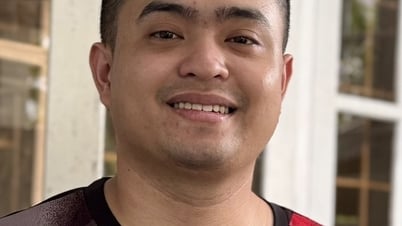
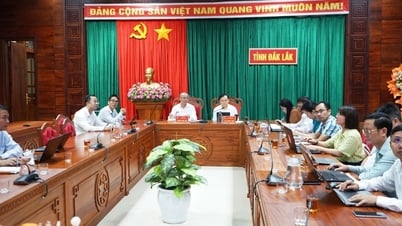
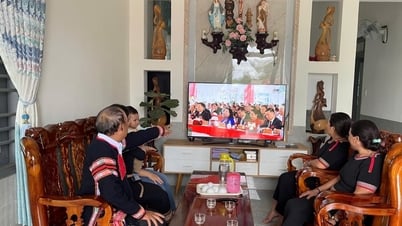
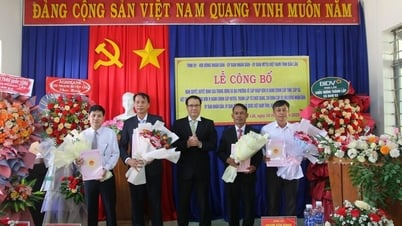
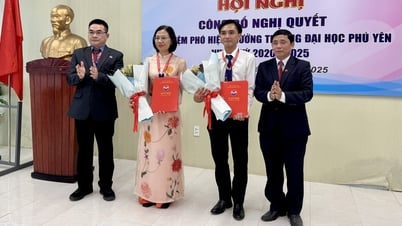
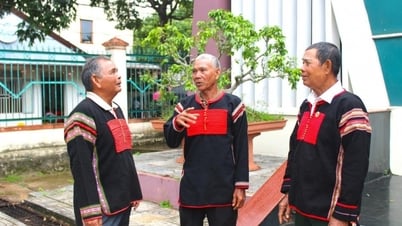




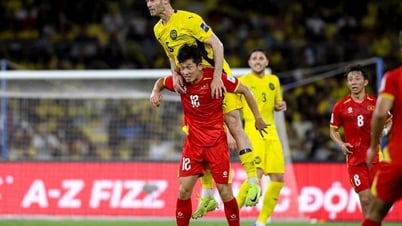
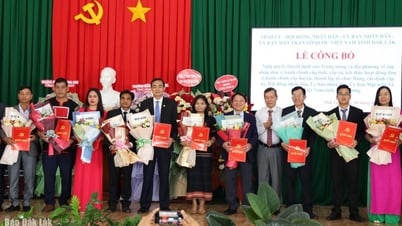
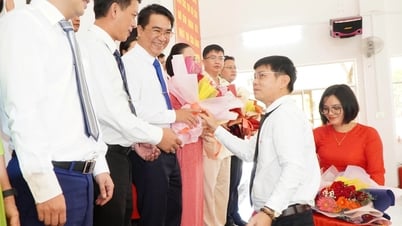
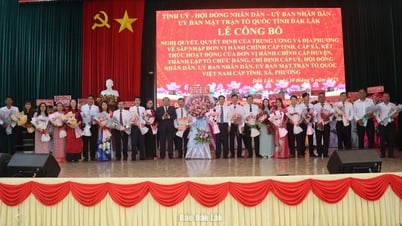

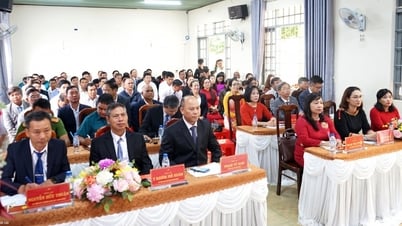












































































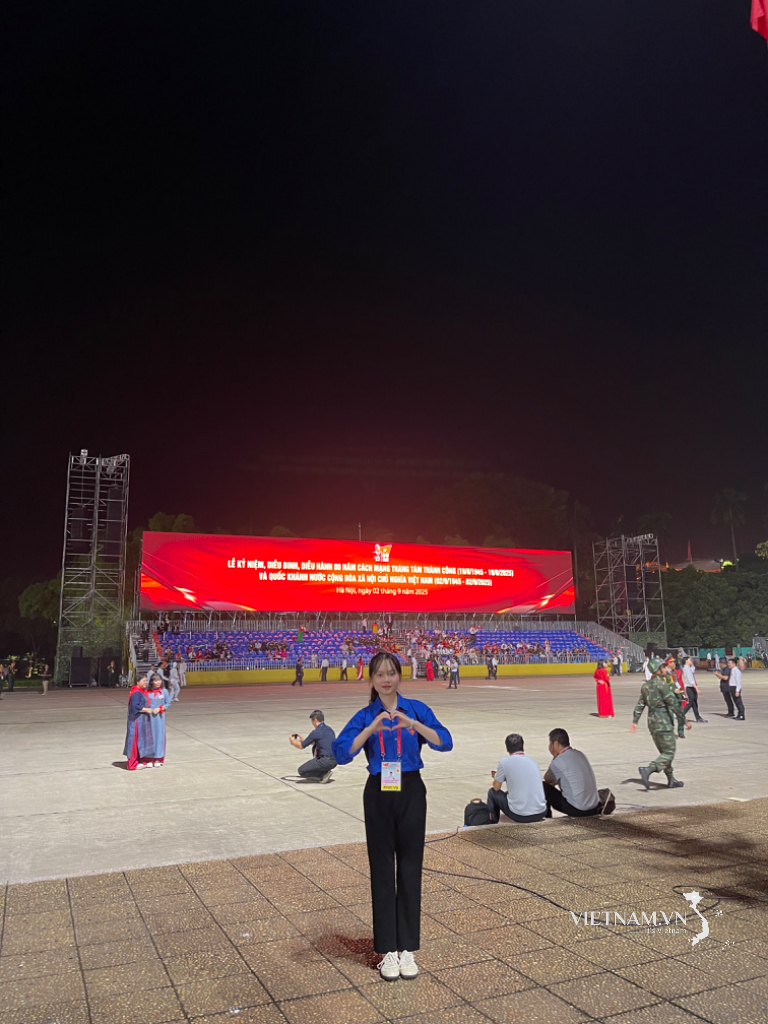



Comment (0)